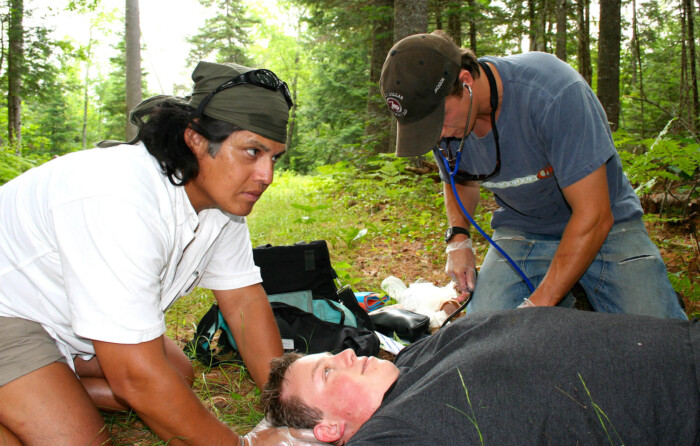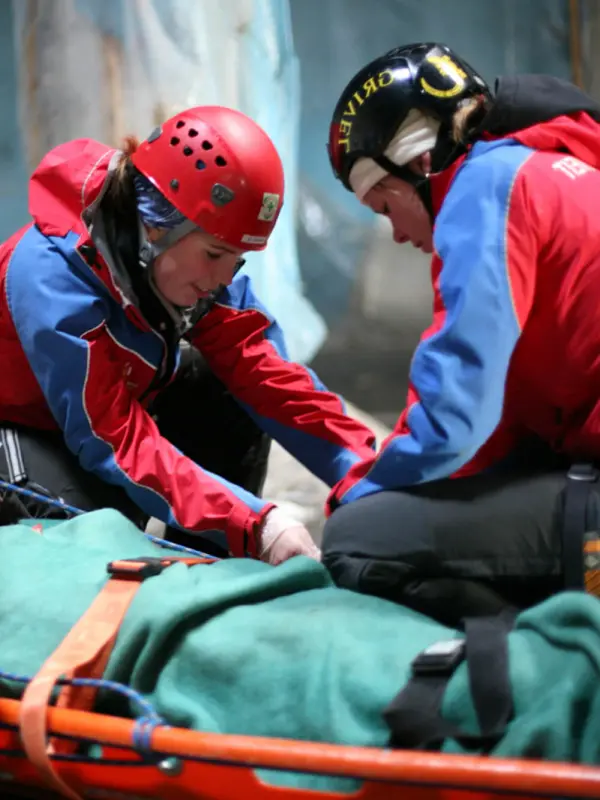Wilderness First Aid
- Minimum Duration
- 16 Hours
- Minimum Age
- 16
- Minimum Cost
- $200+ USD
- Skill Level
- Any

Description
Wilderness First Aid is the ideal course for outdoor enthusiasts on overnight or short term wilderness adventures. Students will be able to recognize medical emergencies, and will become familiar with basic life saving skills, patient assessment, and basic field care for common injuries.
Curriculum
The Wilderness First Aid curriculum involves a minimum of 16 hours of instruction when taught in the United States and 20 hours when taught in Canada. Hours vary in other countries. In-class learning involves lecture, discussion, patient assessment drills, and skills labs. Students are encouraged to use their textbook to expand their knowledge after the course.
Requirements
Prior to enrolling, please review our Functional Position Description. The criteria in this policy allow students to self-assess their ability to meet the demands of a WMA International course as well as the demands of a certified wilderness medical provider in the field.
Evaluation
This course is pass/fail. 100% attendance is mandatory. Evaluation is based on practical patient simulations, hands-on activities, and a written test. WMA International is committed to making reasonable accommodation for any student with special needs.
Recertification
Certifications are valid for three years. Graduates of this course should take another WFA course or consider upgrading to the Wilderness Advanced First Aid or Wilderness First Responder.
Course Topics
- Patient assessment and emergency care including CPR and AED use, basic life support skills, the patient assessment system, patient reporting, and calling for help.
- Treatment of musculoskeletal injuries, including splinting.
- Environmental medicine including illness and injuries related to temperature, lightning, submersion, and environmental toxins.
- Non-technical lifting, moving, and extrication of patients with an emphasis on spinal motion restriction when applicable.
- Management of wounds such as lacerations, burns, and blisters.
- Practical Skills including bleeding control, wound cleaning, bandaging, splinting, spine stable patient packaging, hypothermia management, medical kit preparation.
- Recognition of signs and symptoms associated with serious medical emergencies.
- WMA International wilderness protocols including treatment of anaphylaxis and wound management.
Course Topics
- Patient assessment and emergency care including CPR and AED use, basic life support skills, the patient assessment system, patient reporting, and calling for help.
- Treatment of musculoskeletal injuries, including splinting.
- Environmental medicine including illness and injuries related to temperature, lightning, submersion, and environmental toxins.
- Non-technical lifting, moving, and extrication of patients with an emphasis on spinal motion restriction when applicable.
- Management of wounds such as lacerations, burns, and blisters.
- Practical Skills including bleeding control, wound cleaning, bandaging, splinting, spine stable patient packaging, hypothermia management, medical kit preparation.
- Recognition of signs and symptoms associated with serious medical emergencies.
- WMA International wilderness protocols including treatment of anaphylaxis and wound management.
